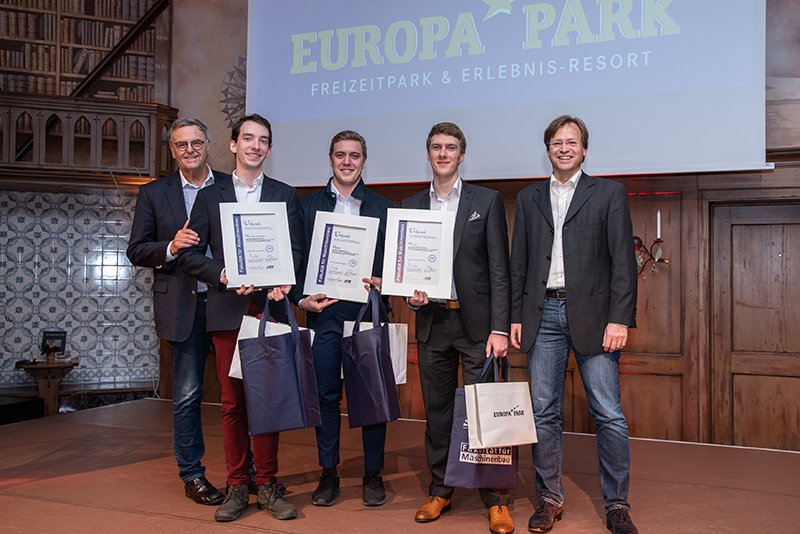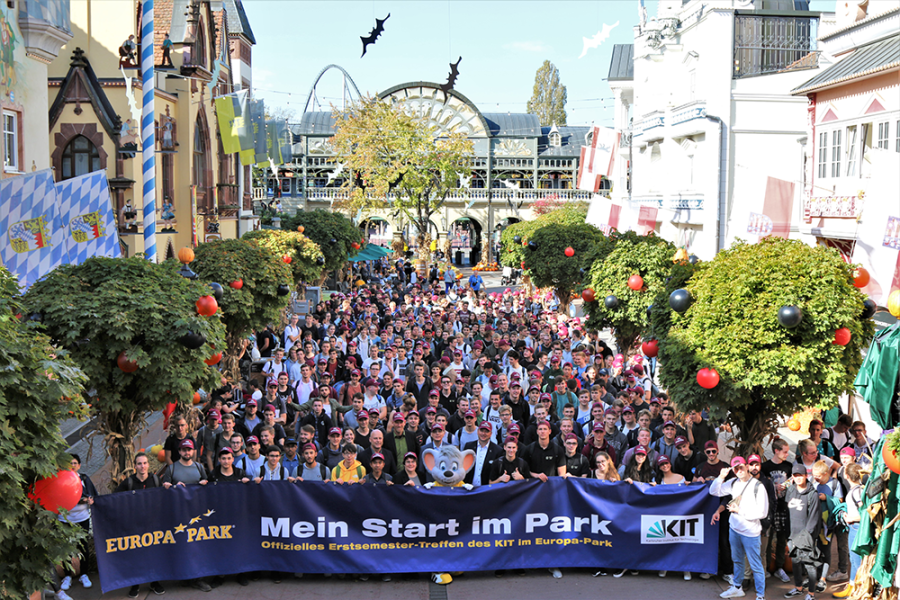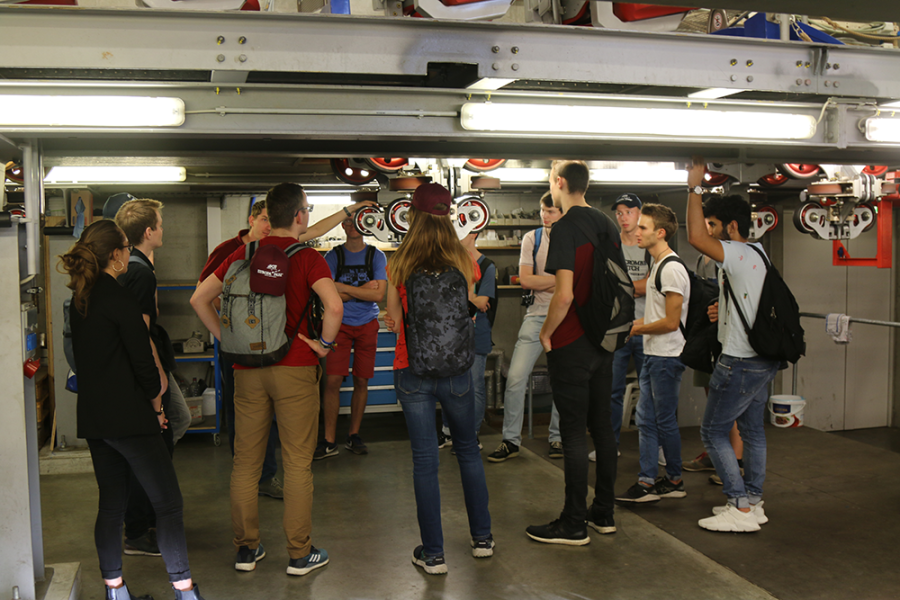Top of the Class

Skilled technical students are in demand when they graduate, so one of the best ways to attract this future workforce is to reach them early.
The Mack family has a close relationship with the Karlsruhe Institute of Technology (KIT) in Germany. Europa-Park’s founder and owner, Roland Mack, studied mechanical engineering at the university.
“In a way, Europa-Park’s foundations were laid during my time there, as my father and I went on to open Europa-Park one year after my graduation,” he says.
Mack has supported KIT as a University Council member, and in 2012, he started the Roland Mack Scholarship, from which around 70 students have benefited. “In return, we get access to the most talented engineers-to-be, have the opportunity to talk to them, and establish our company as a potential employer,” he says.
Europa-Park and Mack Rides have hosted a kickoff event for KIT’s first-year mechanical engineering students every year since 2012 (except for 2020, due to the pandemic). Around 400 students participate in backstage tours and meet experts and engineers, including KIT alumni. To date, almost 5,000 students have taken part. “It’s always fantastic to see a former student talk about their experience working for our companies,” Mack says.

This real-world experience helps engineering students understand the fields open to them, including mechanics, hydraulics, electronics, and roller coaster design and construction. “University is often a very theoretical place,” Mack says. “We show students where creativity comes into play and how it connects to what they are learning in the classroom.”
Hands-on activities and problem-solving challenges are useful teaching tools.
The Mack companies work with international universities too. “We have a partnership with the Film Academy Baden-Württemberg, where we encourage the development of innovative content and give students a platform to present their work,” Mack explains. “We have just launched our VEEJOY streaming platform, and we present some exclusive content from students there. We also work with universities on market research projects.” Industry insights and students’ fresh perspectives combine to add value.
As digital change accelerates, tech-savvy students are “a good resource for your industry’s development,” says Professor Jürgen Fleischer, director of wbk Institute of Production Science at KIT.
In Canada, Dr. Kathryn Woodcock is a professor in the School of Occupational and Public Health at X University (the X anticipates the name change at Ryerson University) and focuses on human factors engineering, especially amusement rides and attractions.
“Many students don’t need any persuasion to be interested in this industry. For many, it’s a dream job,” she says. “However, because they see this as a very competitive industry, they might pursue careers in others that seem more of a sure thing.”
Woodcock adds that attractions projects could be very engaging, but “many parts of academia don’t regard the industry as ‘serious.’”
“Faculty members are often familiar with theme parks and attractions from vacations, but that familiarity does not translate to intentional references to the industry in lectures, labs, and assignments,” she says. “There is little scholarly literature that reflects the sophistication of attractions industry technologies. In fact, the industry hides phenomenal complexity and innovation underneath elaborate show and zealously guards trade secrets. Without access to backstage information, a professor would be reluctant to present examples and exercises about it.”
So when students look to faculty members for guidance on career paths, the attractions industry is not often one they would suggest. Also, schools might not permit students to participate in term-time networking activities, such as the IAAPA Show Ambassador program and industry standards and safety events.
“Attractions should think about how they view the school and faculty members,” Woodcock says. “Are they just a ‘manufacturer’ of future employees, or do they have value? Academics are always interested in finding answers to questions and discovering knowledge.”

Fleischer, who initiated the “exciting cooperation” with Roland Mack, would agree. “We like each other. He sees the benefits and can show young people the way to success. I’m happy to show them that education opens the avenue to an exciting world,” Fleischer says.
Clearer signposting about students’ options would also help. The attractions industry needs to show “not just the creative end product but specific roles—many of which are behind the scenes and intentionally invisible to guests,” Woodcock says. “Few students appreciate how many disciplines are involved in designing, developing, and opening a new attraction.”
Tailoring academic programs to the work students aim to do is essential. Internships can reassure students of their career goals and help them develop skills, but they can be scarce. “Sometimes the recruitment system screens applicants based on GPA rather than industry familiarity and motivation,” Woodcock adds.
Internships and work placements are integral to the Attractions and Theme Parks Management program (ATPM) at Breda University of Applied Sciences. The Netherlands university has helped many students “transition from fan to professional,” according to ATPM Coordinator Bart Stadhouders.
“We invite a lot of industry experts to share their stories in class,” he says. Breda University has worked with partners including Efteling, Plopsa, Disney, Vekoma Rides, and P&P Projects. Europa-Park’s Molencafé, which serves Dutch pancakes, was born out of a student assignment.
IAAPA provides scholarship funding for two international students. “We are really thankful for that support, which helps our students take the first steps into the industry and benefit from IAAPA’s network,” says Stadhouders.
When it comes to winning over prospective employees, the attractions industry has the advantage of bringing theory to vivid life. “Checking tracks and trains on top of the ‘Silver Star’ roller coaster comes with impressive views,” says Mack. He urges the industry to “start conversations today” with education providers to solve the skills shortage and ensure “everyone’s a winner.”
